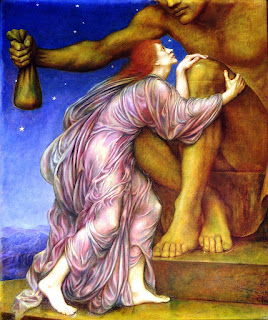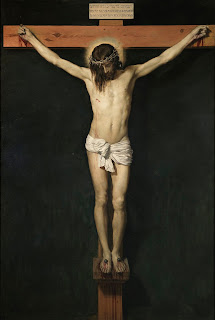Meditation: 26th Sunday Ordinary Time

(The Rich Man in Hell, Seeing Lazarus Embraced by Abraham, courtesy commons.wikimedia.org) Amos is, perhaps, the harshest and most scathing of the prophets. His words are striking and clear; he leaves no room for ambiguity in condemning the sins of those whom he is preaching to, both his contemporaries and us. God is sounding a warning to us of what will happen if we become complacent in our temporal goods, reveling in them as if they were our own. He is crying out His hatred of our turning away from His commandments and pursuing our own desires and pleasures. In the Gospel, Jesus tells the story of the rich man and Lazarus, reiterating the consequences of complacency and self-indulgence. The rich man, who was complacent, self-indulgent, and completely ignored poor and starving Lazarus on his own doorstep, ends up suffering in the netherworld while Lazarus ends up in the bosom of Abraham. His petition to Abraham for Lazarus to relieve his suffering is denied precisely becaus...





